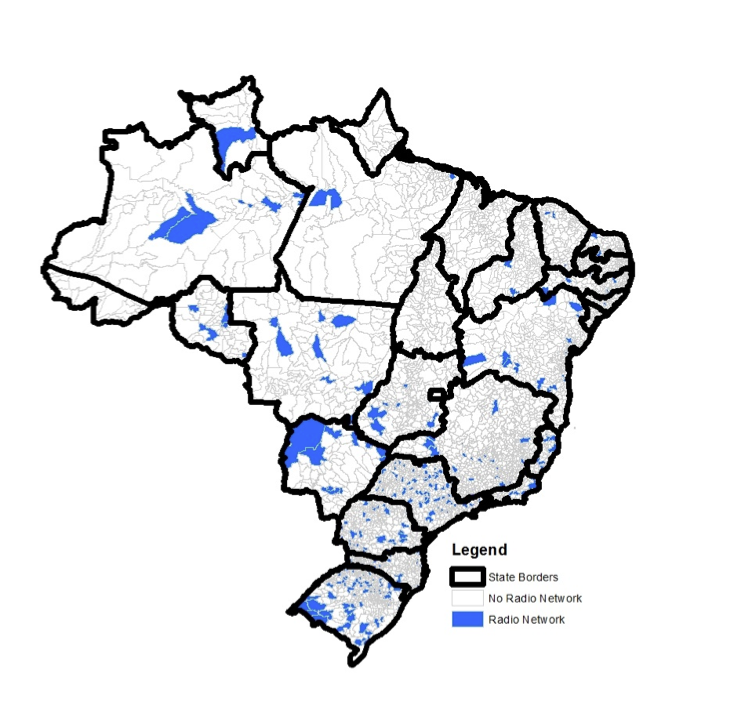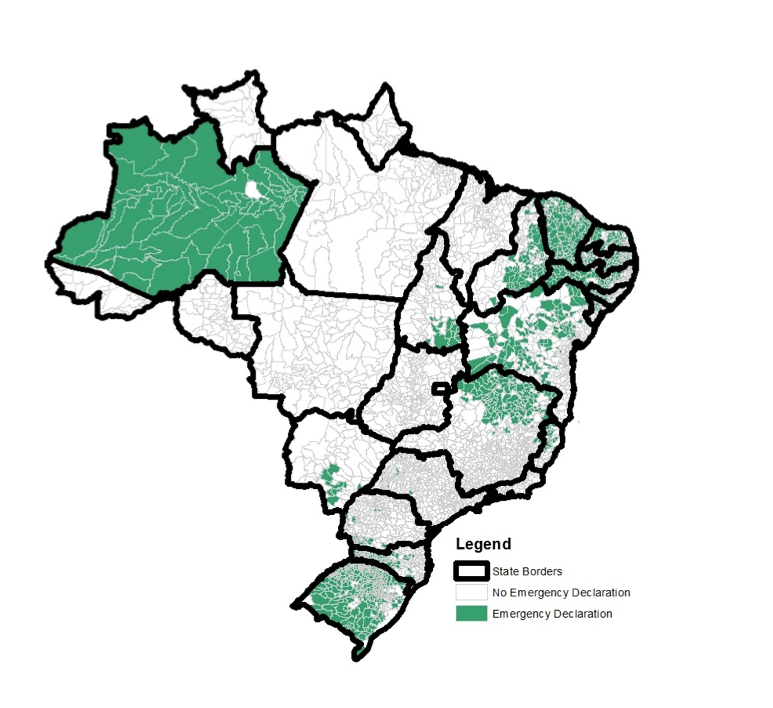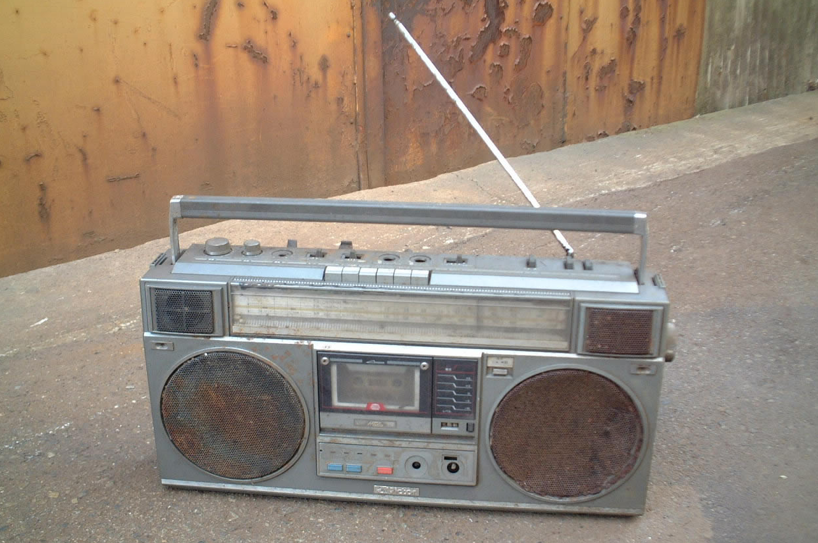A new study of drought relief in Brazil highlights the role of local media in political accountability
São Paulo is currently experiencing one of the worst droughts it has seen in more than 80 years. The Cantareira reservoir system, which supplies the city, is operating at around 10 percent of its normal volume. Some predict that water could run out in less than 100 days. Beyond the limits of South America’s largest city, the drought is affecting the country’s southeast and central provinces. Rationing has already raised tensions throughout the region. In years past, these regions and others like the hard-hit northeast have received some drought relief aid to soften the economic blow to crops, livestock and citizens. But on the eve of a presidential election many of these drought-stricken municipalities are wondering if they’ll receive discretionary aid.
In Brazil—what some have called “The Social Media Capital of the Universe”—recent research from Harvard and Fundação Getúlio Vargas is proving the effectiveness of a traditional media stalwart: radio. And banding together on the air could be a useful tactic, says the new study of local radio networks in Brazil.

A new study of drought relief in Brazil highlights the role of local media in political accountability
São Paulo is currently experiencing one of the worst droughts it has seen in more than 80 years. The Cantareira reservoir system, which supplies the city, is operating at around 10 percent of its normal volume. Some predict that water could run out in less than 100 days. Beyond the limits of South America’s largest city, the drought is affecting the country’s southeast and central provinces. Rationing has already raised tensions throughout the region. In years past, these regions and others like the hard-hit northeast have received some drought relief aid to soften the economic blow to crops, livestock and citizens. But on the eve of a presidential election many of these drought-stricken municipalities are wondering if they’ll receive discretionary aid.
In Brazil—what some have called “The Social Media Capital of the Universe”—recent research from Harvard and Fundação Getúlio Vargas is proving the effectiveness of a traditional media stalwart: radio. And banding together on the air could be a useful tactic, says the new study of local radio networks in Brazil.


Reply